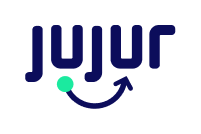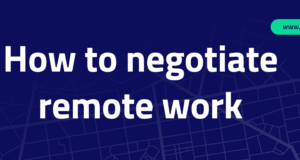Cover letters help recruiters to determine if a candidate is suited for their job opening. It is a highly useful tool in the hiring process and a great opportunity for the job seeker to be matched with their new professional home. So why do candidates view it with such great reluctance? In our years of experience, we found the answer: candidates dread writing the cover letter because they simply don’t know how. We will change that today.
In today’s article, we will teach job seekers why and how to write a cover letter. We will discuss the importance of a cover letter in the job application process and how it can make a difference in getting a candidate noticed by hiring managers. We will also provide a list of what to include in a cover letter as well as the things to avoid. And, to make things even easier, we’ll provide examples of how to write the perfect cover letter.
What is a cover letter?
A cover letter is the CV’s best friend. They complement each other and together give the recruiter the full image of the professional applying for their job. The main difference between these two documents is their intent.
The CV provides a summary of a candidate’s work history, education, and achievements, while the cover letter is a great opportunity to showcase personality, passions, and the specific qualities that make an individual the best fit for the job.
Another aspect that differentiates the two is their formatting. While a CV’s main body is in the form of bullet-point lists, the cover letter looks exactly as it sounds: like a letter. This means it has an introduction, a body, and a conclusion, all written in paragraphs.
Cover letter vs letter of interest
There’s always a bit of confusion regarding the two. The difference is that the cover letter accompanies a CV when applying for a job that is made available by the employer, whereas the letter of intent shows interest in working with a company even though they haven’t made any vacancies public.
How to write a cover letter
Every cover letter should have three parts: the introduction, the body, and a conclusion. You should write it in a narrative form, and have all parts connected to each other. Ideally, you should determine a direction you want to take, and the idea you wish to convey and expand on it.
The introduction of your cover letter should grab the attention of the reader. This is where you make your big statement: who you are and what is the main reason you are interested in the job.
The body is where you get into more detail. It’s where you back up your introductory statement and explain to the employer how your experience and skills make you the best candidate for the job. Keep it relevant to the job description and provide tangible examples from your work history.
The conclusion should be one part reiteration of your interest in the job and one part where you thank the hiring manager for their time.
Here are some helpful CV writing tips to help you stand out to your future employer!
How to start your cover letter
First of all, drop the “To whom it may concern” line. It does only harm you and the world as a whole. This horrid line says one thing about you: you didn’t do your research before applying. If you did, you would have found out from their website the name of the CEO, the Head of Recruiting, or the Head of the Department you’re applying for. But you didn’t make an effort. So maybe you won’t make an effort once you’re hired either. Right?
So it’s settled. The first line of your cover letter should be “Dear [one of the names mentioned above].”
Now, for the opening line. There are many great ways to approach this. Here are some examples of how to nail the beginning of your cover letter.
I grew up in a loving family who bought me an Atari console when I was eight years old. I am still to pass the 27th wave of Asteroids, but that’s a different story (teach me how, please!). My passion for gaming starts with you. It has evolved over the years, yet I’m still drawn to the 8-bit tunes and joysticks that molded the game designer I am today. I want to help bring that passion to others who, like me, will forever have some of their best memories around an Atari console.
My colleagues admire my sense of style and coffee runs. They invite me to all the gatherings and one of them asked me to be the godfather of his child. But they always point out the fact that I’m taking my job too seriously. My boss agrees. I know it’s “only” marketing, but there are so many new ways to communicate with our clients, and so many processes that we can upgrade, it breaks my heart that we don’t take advantage of them. You do. I know you do because I’ve been learning from you for the past two years. I’ve grown because of you and I want to show it. So you posting the ad for a Digital Marketer felt like Christmas Day.
Formatting a cover letter
The format of the cover letter should always be simple and easy to read. Use a professional font like Times New Roman or Arial. Choose standard margins and spacing.
The length of the cover letter should be one page or less. Keep it concise and to the point.
We’ll leave you with this important bit about the content of your cover letter: when you write about your qualifications and skills, make sure to not repeat the information in your resume. You’ll want to focus on the qualities that make you the ideal candidate for the job, yes. But write about a personal experience or a specific project you worked on with greater detail, and give a personalized answer to the question: What makes you the best candidate for this position?
Cover letter examples
We’ll take the intros from above and create two cover letters to give you an example of what they should say and what they should feel like.
Dear [head of Atari recruitment],
I grew up in a loving family who bought me an Atari console when I was eight years old. I am still to pass the 27th wave of Asteroids, but that’s a different story (teach me how, please!). My passion for gaming starts with you. It has evolved over the years, yet I’m still drawn to the 8-bit tunes and joysticks that molded the game designer I am today. My desire is to help bring that passion to others who, like me, will forever have some of their best memories around an Atari console.
I now work for [gaming company] where my problem-solving skills and attention to detail have granted me the role of Lead Game Designer. We take pride in all the games we put out. I respect and admire my colleagues, and according to the yearly reviews, I am a great leader who knows how to manage an effective team of talented people. To me, Atari means passion and dedication, sentiments I have for all the games I’ve put my stamp on (especially Snowbard, that’s my favorite). I know there will be challenges and responsibilities that come with this job. I am ready, willing, and able to surpass your expectations.
Thank you for taking the time to consider my application. And thank you for Leap Frog and the image of my then six-year-old brother with his tongue out never quite managing to make his frog land.
Sincerely,
[name]
Dear [head of company recruitment],
My colleagues admire my sense of style and coffee runs. They invite me to all the gatherings and one of them asked me to be the godfather of his child. But they always point out the fact that I’m taking my job too seriously. My boss agrees. They say it’s “only” marketing, but there are so many new ways to communicate with our clients, and so many processes that we can upgrade, it breaks my heart that we don’t take advantage of them. You do. I know you do because I’ve been learning from you for the past two years. I’ve grown because of you and I want to show it. So you posting the ad for a Digital Marketer felt like Christmas Day.
Let me emphasize the fact that to me it’s never “only” marketing. It’s a way to bring people closer to their wants and needs. Many people can be sales agents, but you need a broad understanding of human psychology to relay your message effectively. My degree in this field, along with my ability to implement new strategies is what made the [learning platform] the staple it is today. Marketing takes introspection, forward-thinking, and courage, qualities that I have and that will make me a very suitable candidate for your job.
Thank you very much for every piece of information you put out, for the software that you created, and for taking the time to go through my application.
Sincerely,
[name].
Why are these cover letters effective?
- They address the hiring manager by name, which shows you’ve done your research.
- They are personalized. They talk about you within the context of the company and job posting.
- The introduction grabs the attention of the reader and clearly states your interest in the job.
- The body highlights your skills and background that fit with the job requirements.
- The conclusion reiterates your interest in the company and expresses gratitude for the hiring manager’s consideration.
Applying to a customer service job? Here are the skills you need to use in your CV!
The dos and don’ts of writing a cover letter
DO:
- Tailor the cover letter to the job description. We know you already went through the job description when you edited your CV to match it. Go over it again and see which of your skills pertain to that specific job and perhaps you didn’t address in the resume.
- Be specific about your examples. Correlate real experiences with your skills, don’t just list them. It’s an easy way for the employer to see how you can add value to their company.
- Keep it concise. Your cover letter should be one page long or less. Usually, three long paragraphs should do.
- Proofread your cover letter before sending it. There’s no bigger turn-off than a spelling mistake when you talk about attention to detail being one of your strong suits. We suggest you share it with a friend to read it. Another pair of eyes can do wonders in this scenario.
DON’T:
- Send a generic cover letter. Your letter not being tailored to the job is a big red flag for your employer. It sends out the message that you only do things half-heartedly. Not a great first impression, take it from us.
- Focus too much on yourself and not enough on the employer’s needs. Yes, this letter is about you. More precisely, about how your skills and past experiences will be a huge asset for your employer and the company.
- Use clichés and overly formal language. You are not submitting a request to your local administration office. You are writing a letter to people who will hopefully be your future colleagues.
- Send it out without proofreading it. We cannot stress enough the importance of this. Use online proofreading tools or send it to a friend to read it.
We’re certain that you are more than able to write a great cover letter and get that coveted callback.
Read our pre-interview tips to prepare you for the next step of the hiring process!
To sum things up
Writing a great cover letter can make a huge difference in your job search. It will set you apart from other candidates and give your potential employer the chance to visualize how your skills and experiences can bring value to their company. It is a tool you most definitely should use to your advantage.
Need assistance in your job hunt? We’ve helped hundreds of candidates get their dream jobs abroad, and we can help you too! Let’s get in touch and figure out how we can assist you in your job-seeking process.









